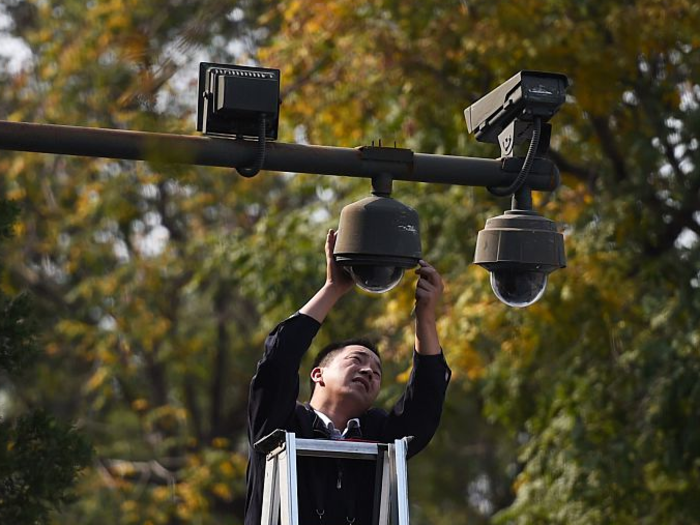- Home
- slideshows
- miscellaneous
- Viral Chinese deepfake app Zao lets people superimpose their faces onto celebrities like Leonardo DiCaprio and it is terrifyingly convincing
Viral Chinese deepfake app Zao lets people superimpose their faces onto celebrities like Leonardo DiCaprio and it is terrifyingly convincing
This tweet from game developer Allan Xia shows his face grafted onto various shots of Leonardo DiCaprio.

Xia also had a dialogue with himself as both Jon Snow and Samwell Tarly from "Game of Thrones."

Here’s for Asian representation in Hollywood 😂 #ZAO #AI #Deepfake pic.twitter.com/qrSs3VajfL
— Allan Xia (@AllanXia) September 1, 2019The app has GIF-generating functionality, as illustrated by this gif of Xia as Wolverine.

The #ZAO app even has a built in meme gif generator...Apple is way behind the curve with Memoji’s 😅 pic.twitter.com/dg5T3u7pt8
— Allan Xia (@AllanXia) September 1, 2019It also appears to work with video game characters, here's Xia inserting his face into "Devil May Cry."

Oh yeah, #Zao also works rather well with CG characters. I guess folks might not have to spend hours during character creation? I can see streamers loving this application of AI facial replacement. #DMC5 pic.twitter.com/AdpB4DIA00
— Allan Xia (@AllanXia) September 2, 2019Finally Xia replaced a K-Pop singer's face with his own.

Taking this experiment to it’s inevitable conclusion. #KPop stans eat your heart out 😂 @weareoneEXO#Zao #AI #Deepfakes #Exo #baekhyun pic.twitter.com/YjNEbRP1G6
— Allan Xia (@AllanXia) September 2, 2019Twitter-user Nikk Mitchell also deepfaked his way onto DiCaprio's filmography.

Me risking my face rights to test out #ZAO so ya'll don't have to. The image I used is one single normal selfie that you can see in the bottom left of the image.#thefuturescaresme pic.twitter.com/RjtK8ZWPq9
— Nikk Mitchell 🛸 (@nikkmitchell) September 2, 2019Mitchell expressed his amazement at the app, mapping himself onto two Chinese actors.

I am in absolute awe of #ZAO. I uploaded a couple selfies, choose a clip, and seriously in less then 30 seconds had myself fully deep faked in. I can't wait till I can watch entire films where every character is me.
On a side note to the developers, please don't be evil. pic.twitter.com/Y7qCpghfw9
Chinese technology commentator Matthew Brennan inserted himself into the "Big Bang Theory."

Chinese viral deepfakes app #ZAO Clip of myself as Sheldon generated in a few seconds from a single picture. pic.twitter.com/JI7MqWUDu6
— Matthew Brennan (@mbrennanchina) September 1, 2019And Twitter user Andrew Rae transposed himself into "Braveheart."

New Chinese app Zao does AI facial replacement in 10 seconds. That's me in the bottom-left corner. pic.twitter.com/z4EcAVm1g3
— Andrew Rae (@andrewfrae) September 2, 2019Zao isn't currently available to non-Chinese users, but it's raising some concerns around privacy and the ethics of deepfakes

Behind Zao is Momo, a large social-media company which owns Chinese dating app Tantan.
Bloomberg and The Guardian reported that after going viral, privacy concerns started to crop up from users who had seen a line in the app's terms and conditions which stipulated the app had "free, irrevocable, permanent, transferable, and relicense-able" to user-generated content.
The backlash promoted WeChat, China's popular chat service, to block Zao on its platform.
Bloomberg reports that Zao quickly updated its terms, saying "headshots" and "mini-videos" won't be used for anything other to improve the app, or anything else pre-approved by the user. The sudden backlash is reminiscent of the mistrust that surrounded FaceApp, a Russian app which used AI to apply various filters to users' faces to make them appear old or switch gender.
Zao also said in a statement, according to Bloomberg: "We understand the concern about privacy. We've received the feedback, and will fix the issues that we didn't take into consideration, which will need a bit of time."
Should Zao decide to make its app available more widely, it's likely Western users will still feel concern. China has used facial recognition technology to massively expand its surveillance network, and users will likely balk at handing over personal data to an overseas developer. Chinese selfie app Meitu likewise went viral in the West in 2017 for its beautification of photos, but was criticized for demanding access to excessive data like phone numbers and GPS co-ordinates.
Popular Right Now
Popular Keywords
Advertisement